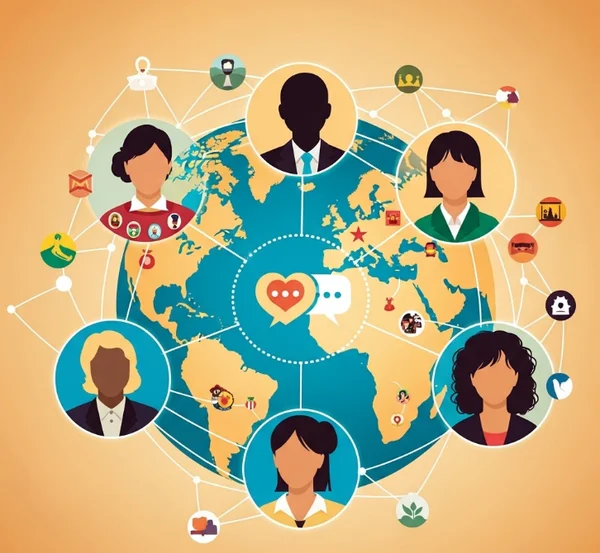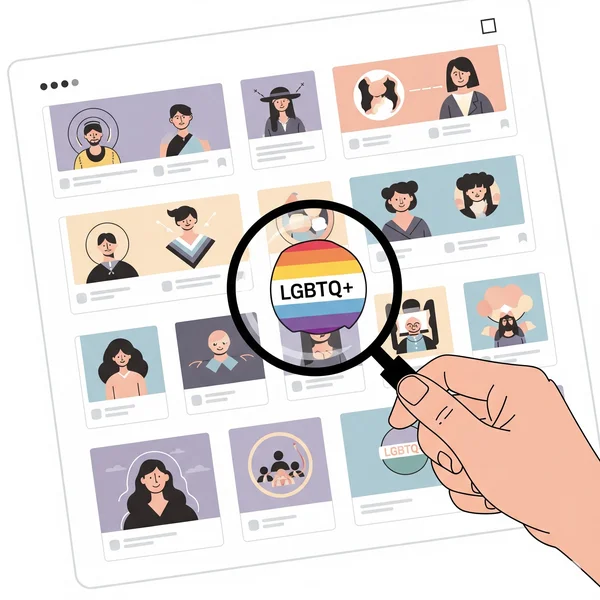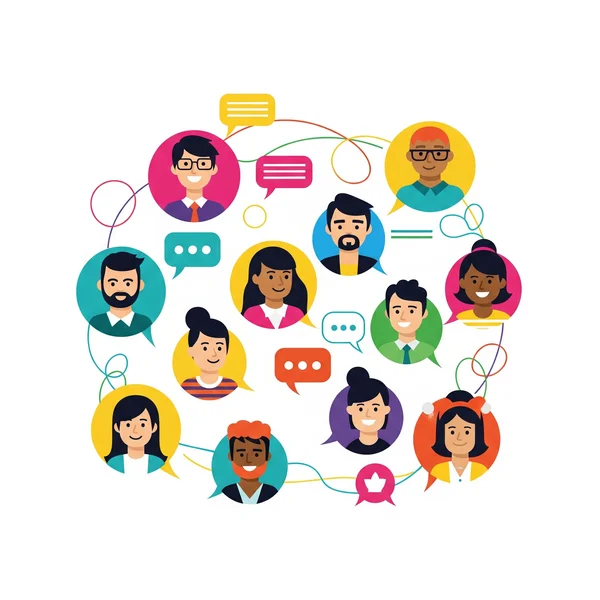Find LGBTQ+ Support: Safe Online Communities Guide
June 9, 2025 | By Riley Foster
Exploring your identity can sometimes feel isolating, and the desire to connect with others who understand is natural. How to find LGBTQ community online? The internet offers a vast array of spaces, but finding a truly supportive and safe space online is key. This guide will help you navigate how to find LGBTQ support and connect with welcoming LGBTQ online community platforms.
Why Online LGBTQ+ Communities Can Be Lifelines
For many, especially those in areas with limited local resources or who are not yet out, online LGBTQ online community groups can be invaluable. Are online LGBTQ groups safe? While caution is needed, well-moderated ones offer significant benefits.
Overcoming Isolation and Finding Belonging
One of the most powerful aspects is overcoming isolation. Connecting with individuals who have shared experiences can foster a profound sense of belonging and connection, reminding you that you are not alone on your journey.

Access to Information, Resources, and Peer Support
These communities are often rich hubs for information access, resources sharing, and invaluable peer support. Whether you have questions about coming out, understanding terminology, or navigating relationships, you can often find others who have been there. This complements tools like a gay test by providing human connection.
How to Find Reputable LGBTQ+ Online Communities
Knowing where to start can be daunting. Here are some tips to find LGBTQ support online:
Starting with Established LGBTQ+ Organizations
Many established organizations (like The Trevor Project, GLAAD, PFLAG) have their own online communities or list reputable sources on their official websites. This is often a great, secure starting point.
Exploring Moderated Forums and Social Media Groups
Platforms like Reddit have numerous moderated forums (subreddits) dedicated to various LGBTQ+ identities and topics. Similarly, Facebook and other social media groups can be useful. Look for groups with clear community guidelines and active, responsive moderators.

Using Specific Interest or Identity-Based Searches
Don't be afraid to search for specific interests or identity-based groups. Whether you're looking for niche communities for asexual individuals, transgender support, or LGBTQ+ people of color, targeted searches can yield more relevant online support groups gay and for other identities.
Identifying a Safe Space Online: Key Indicators
Not all online spaces are created equal. Here's what to look for when trying to identify a genuine safe space online:
Clear Community Rules and Active Moderation
A truly safe LGBTQ online community will have clear community rules regarding respectful interaction and anti-discrimination. Crucially, there should be evidence of active moderation and enforcement of these safety policies.
Respectful Communication and Zero Tolerance for Hate
Observe the general tone. Is respectful communication the norm? How does the community and its moderators handle instances of hate speech, bullying, or anti-harassment? A zero tolerance policy for such behavior is a good sign.
Privacy Controls and Data Protection Information
Check what privacy controls the platform offers and review any data protection information provided by the community or platform. Options for anonymity or controlling who sees your posts can be important.

Tips for Engaging Safely and Positively in an LGBTQ+ Online Community
Once you've found a promising LGBTQ online community, here's how to engage constructively:
Start by Observing: Lurk Before You Leap
It's perfectly okay to observe first – or "lurk" – to get a feel for the community's culture, common topics, and how members interact. This helps you understand dynamics before actively participating.
Protect Your Personal Information: Be Mindful of Sharing
Always be cautious about sharing personally identifiable information. Protect personal info like your full name, exact location, or workplace. Be mindful of sharing sensitive details until you've built trust. General online safety tips always apply.
Contribute Positively and Respectfully to Discussions
When you're ready to participate, aim for positive contribution. Engage in respectful dialogue, even when discussing differing opinions. Offer constructive feedback and support to others.

Connect and Thrive: Your Online LGBTQ+ Support Network Awaits
Finding a supportive LGBTQ online community can be a transformative part of your self-discovery and well-being. It’s a space to learn, share, and grow without judgment. By using the tips in this guide, you can more confidently find LGBTQ support and cultivate meaningful connections in a safe space online. Remember, tools on sites like GayTest.me can be a starting point for reflection, and communities can offer the human connection to explore those reflections further.
What has been your experience finding online support? Do you have any favorite safe online communities or tips to share? Your insights could greatly help others on their journey!
Finding Your LGBTQ+ Online Community and Support
-
How do I know if an online LGBTQ+ community is truly safe?
Look for clear, enforced community rules, active and responsive moderation, a general atmosphere of respectful communication, and transparent privacy controls. Trust your gut; if a space feels off or unwelcoming, it's okay to leave and search for other lgbtq forums.
-
What are some red flags to watch out for in online groups?
Red flags include a lack of clear rules or moderation, prevalent hate speech or bullying that goes unaddressed, pressure to share excessive personal information too quickly, and a general disrespectful or judgmental tone among members of an online support group.
-
Are there online communities specifically for LGBTQ+ youth (or other demographics)? Yes, many! Established organizations often host or recommend communities tailored for youth, seniors, people of color, specific gender identities (like trans or non-binary groups), or those with particular interests. Using search terms like "LGBTQ youth online support" can help you find lgbtq support relevant to you.
-
What if I feel shy about joining an online community?
That's very common! Remember, you can observe first ("lurk") without actively posting until you feel more comfortable. Start small, perhaps by reacting to posts or making brief, supportive comments. Many lgbtq online community spaces are very welcoming to newcomers.
-
Can online support replace in-person connections?
Online support can be incredibly valuable and accessible, offering a unique form of peer support and connection. However, for many, it complements rather than completely replaces the benefits of safe, in-person relationships and community, if those are available and desired. Both can play important roles. For initial reflections, even a tool like the gay test on GayTest.me can be a private first step.